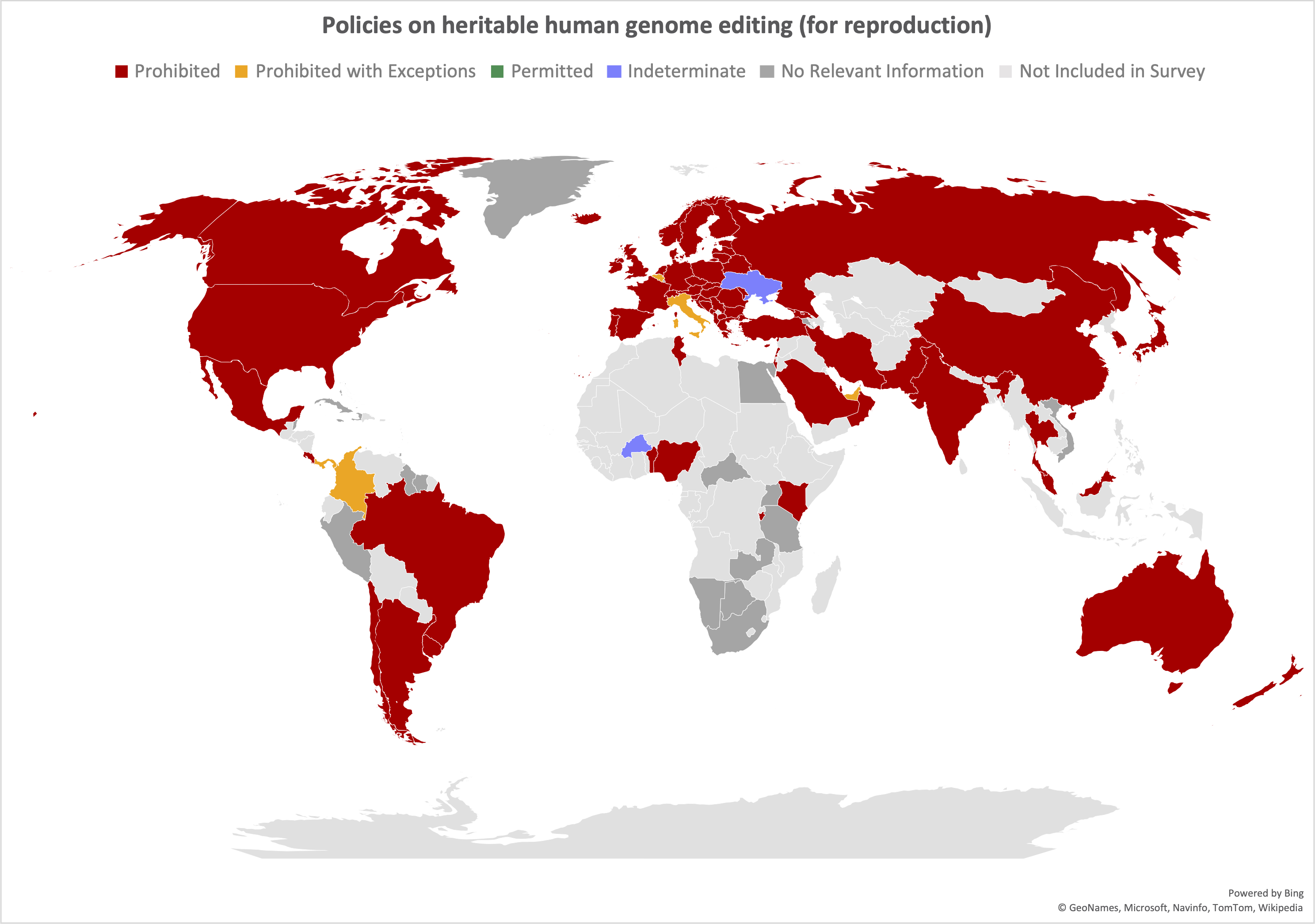Human Germline and Heritable Genome Editing: The Global Policy Landscape
By Françoise Baylis, Marcy Darnovsky, Katie Hasson, and Timothy M. Krahn,
The CRISPR Journal
| 10. 20. 2020
Abstract
Discussions and debates about the governance of human germline and heritable genome editing should be informed by a clear and accurate understanding of the global policy landscape. This policy survey of 106 countries yields significant new data. A large majority of countries (96 out of 106) surveyed have policy documents—legislation, regulations, guidelines, codes, and international treaties—relevant to the use of genome editing to modify early-stage human embryos, gametes, or their precursor cells. Most of these 96 countries do not have policies that specifically address the use of genetically modified in vitro embryos in laboratory research (germline genome editing); of those that do, 23 prohibit this research and 11 explicitly permit it. Seventy-five of the 96 countries prohibit the use of genetically modified in vitro embryos to initiate a pregnancy (heritable genome editing). Five of these 75 countries provide exceptions to their prohibitions. No country explicitly permits heritable human genome editing. These data contrast markedly with previously reported findings.
Introduction
Development of the CRISPR genome editing technology in 2012–131,2 intensified the decades-long controversy on the likely social...
Related Articles
By Darren Incorvaia, Fierce Biotech | 05.28.2025
An international group of gene editing leaders has put out a call for a 10-year ban on heritable human genome editing (HHGE), extending a moratorium that was first proposed in the fallout of a Chinese researcher’s widely decried use of...
Last week, May 21–23, a broad range of experts gathered in Boston to discuss the future of powerful biotechnologies with the potential to change what it means to be human. The fourth in a series of international Summits on human genome editing, this event was organized by the Global Observatory for Genome Editing, which “seeks to expand the range of questions arising at the frontiers of emerging biotechnologies … and fosters international, interdisciplinary, and cross-sectoral dialogue.” Like previous Summits...
By Caiwei Chen and Antonio Regalado , MIT Technology Review | 05.23.2025
Since the Chinese biophysicist He Jiankui was released from prison in 2022, he has sought to make a scientific comeback and to repair his reputation after a three-year incarceration for illegally creating the world’s first gene-edited children.
While he has...
By Kevin Davies, Genetic Engineering & Biotechnology News | 05.21.2025
This week a diverse group of researchers, bioethicists, publishers and theologians, are gathering in Cambridge, Massachusetts, to extend and expand the rolling debate about the merits of human heritable genome editing (HHGE). The international summit is being hosted by the...




